Iran's Raisi Visits Family Of Assassinated IRGC Quds Force Commander
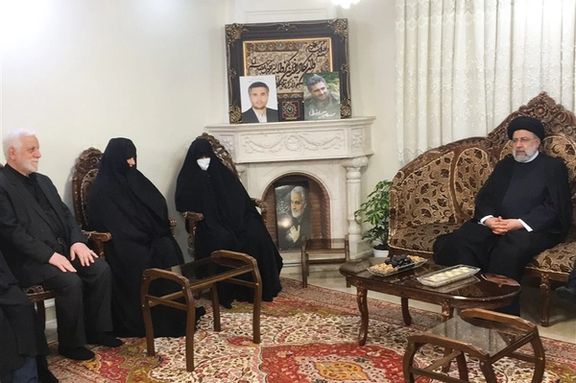
The Iranian president has paid a visit to the family of Colonel Hassan Sayyad-Khodaei, a commander of Iran’s Revolutionary Guard's Quds Force who was assassinated last month.

The Iranian president has paid a visit to the family of Colonel Hassan Sayyad-Khodaei, a commander of Iran’s Revolutionary Guard's Quds Force who was assassinated last month.
In his visit to the Sayyad-Khodaeis on Sunday, Ebrahim Raisi said that his assassination by the opponents of the Islamic Republic in Tehran near his home, instead of confronting him on the battlefield, is a sign of their despair and a victory for the country.
Despite Raisi’s assertion of victory, the assassination was seen as an intelligence and security failure by the government that allowed the killing of a secretive officer in broad daylight in the capital.
Sayyad-Khodaei was the acting commander of the elite Quds Unit 840, who was shot dead behind the wheel of his car on May 22 by two gunmen who fled the scene on a motorbike.
A European security source told Iran International in late May that Sayyad-Khodaei was in charge of planning terror operations outside Iran, including attacks in India, Thailand, Cyprus and Georgia. Suspicions for his assassination fell on Israel and according to some reports, Israeli officials told the United States that they had targeted Sayyad-Khodaei.
After his assassination, Iran International’s sources in Iran reported that another Quds Force unit 840 commander died under suspicious circumstances in Karaj, west of Tehran, on May 30. Colonel Ali Esmailzadeh died when he fell from the roof of his home.
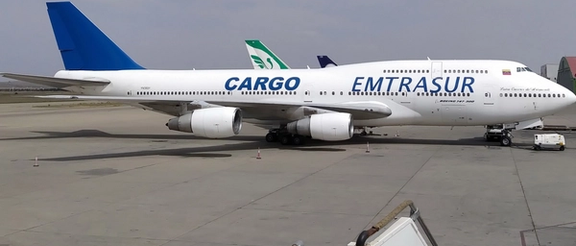
A Boeing 747 operating for the cargo division of Venezuelan national carrier Conviasa is stranded in Argentina for its links with Iran’s IRGC Quds Force.
Aníbal Fernández, Argentina’s security minister tweeted on Saturday that “The Government immobilized in Ezeiza [Airport in Buenos Aires] a Venezuelan plane sanctioned by the United States and withheld the passport of five Iranian crew members.” The tweet came after a local website leaked the news about the plane.
The plane was previously operating for Iran’s Mahan Airlines, sanctioned by the United States for its links to Tehran’s extraterritorial intelligence and secret ops outfit, the Quds (Qods) Force since 2008. The specific aircraft which belonged to French airlines since it entered service in 1986, was sold to Mahan Airlines in 2007 and apparently was later sanctioned by the United States.
Early in 2022, Venezuela’s Conviasa decided to set up a cargo division that came to be called Emtrasur Cargo and its first plane was the Boeing 747-300M bought or leased from Mahan airlines and christened ‘Louisa Caceres Arismendi.’ What is more interesting is that its next two planes were also supposed to be Mahan Airlines aircraft.
With close military and economic cooperation between Caracas and Tehran, the newly established cargo company could to be a joint venture.
However, a Mahan spokesman in Theran denied that the plane had any links with the company and said that it was "sold to Venezuela about a year ago."
The Boeing 747 flew from Mexico to Argentina on June 6, carrying automotive parts, but according to Argentinian media, someone knew something and decided to inspect the aircraft carefully, Aviacioline reported on June 11.
Although it turned out that there was no illegal cargo on board and the auto parts shipment were delivered to its recipient in Argentina, authorities became more suspicious that there were five Iranians and at least a dozen Venezuelans on board, with the Iranians not appearing in the passenger manifest. As a result, the passports of the Iranians were seized and all the passengers are reported to be in a hotel.
According to the same local sources, Argentina suspects that the Iranians are members of the Quds Force but are allowed to leave the country on regular scheduled flights.
But the fate of the plane is another story. No fuel company is willing to provide service to the aircraft for fear of third-party US sanctions. It tried to leave Argentina for Uruguay to get fuel, but had to turn back when permission was denied, according to Spanish-language news website Infobae.
The news about the aircraft emerged after an Argentinian opposition lawmaker, Gerardo Milman, submitted a request for information, citing “the enigmatic behavior of the flight, the confusing ownership of the aircraft and the composition of the crew.” On point that Milman has highlighted is that the Boeing 747 first flew to Cordoba from Mexico, ostensibly because of fog in Buenos Aires and a few hours later flew to its final destination, while its transponder was off.
It is not clear if the fog was the real reason why the plane diverted to Cordoba, and if its crew left the plane or not.
What is also not clear is who provided information to Argentina to carefully inspect the plane and its passengers. Apparently the Venezuelan cargo operation and this particular aircraft were under observation for some time.

More than 60 Iranian economists have issued a statement addressing the government saying that the main cause of Iran’s economic crisis is bad governance.
The signatories, mostly professors of economics in Iranian universities and many who have held government posts, suggest the government’s “economic surgery” since March has led to “social chaos and worsening economic instability.”
With the new Iran year beginning March 22, President Ebrahim Raisi with the backing of parliament began a plan to phase out state subsidies on food imports that had been costing $9-15 billion a year.
While in part a response to global food inflation sparked partly by the invasion of Ukraine, the move, quickly dubbed “economic surgery,” was officially portrayed as a serious reform of Iran’s state-dominated economy.
‘Quick measure in face of global price crisis’
The economists charged in their statement that the motivation was purely fiscal, easing a shortfall in the government budget, and that real reform required more serious change: “[The move was] a temporary and quick measure for addressing the budget deficit amid sanctions and a global food price crisis. We cannot consider this an economic reform.”
The economists argued that this “economic surgery” would lead to a further fall in the value of the Iranian rial and lead to “repeated economic shocks,” and said the government had not engaged with the public about where the policy would lead.
The economists noted Raisi’s election campaign promises to form an inclusive government, utilize experts to draft economic plans, slash “the 50-percent inflation rate,” and build one million housing units each year.
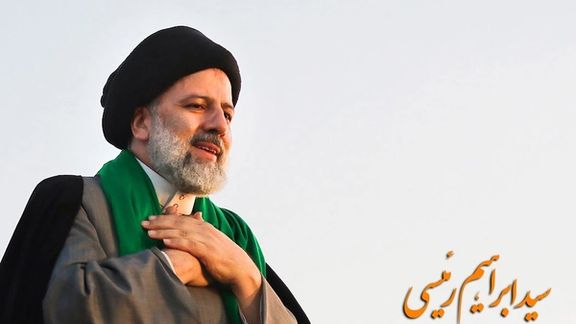
But the economists argued it would not be possible to fulfil such promises without an early agreement in talks with world powers to revive the 2015 nuclear deal and accession to international transparency and related regulations demanded by the Paris-based inter-state Financial Action Task Force (FATF), which blacklisted Iran in 2020.
Despite various restrictions on non-governmental media, many experts and business figures had warned over “the horrible” results of “inaction” in foreign policy and ill-designed policies, the economists said. Economic shocks and the pausing of nuclear talks in March had fed instability, social chaos, and widespread concern among the people over their livelihoods, creating an “explosive” situation.
They went on to warn that “the country’s situation is extremely fragile,” given the elimination of food subsidies. “People’s patience will run out and will place the government and the regime face-to-face with the people.”
Three recommendations
The signatories made three recommendations.
First, the state should have sufficient oil and non-oil export revenues and foreign currency reserves to ensure secure handling of economic fluctuations.
Second, the government should have clear and effective policies to foster macro-economic stability, with control over inflationary budgets.
Third, the government should ensure low-cost access to global markets for goods and services.
The last recommendation is related to extra costs Iranian government and businesses have to bear to do international transaction, given US sanctions and FATF’s blacklisting.
Low growth
The economists warned that Iran had lost ground economically compared with most other countries since 1980, with average growth of 1.6 precent, whereas growth in China, India, Turkey, Malaysia, the United Arab Emirates, and Pakistan had ranged from 4 to 10 percent.
The economists spoke of vanishing hopes, growing poverty and a widening income gap that have led to vengefulness in society. The resulting disorder exhibited itself in destruction of the environment, systematic corruption, widespread emigration, capital flight and brain drain.
The 61 signatories called for “fundamental change in foreign policy” aimed at peaceful coexistence, cooperation with neighbors, and interaction with the world’s economic powers. They also urged improvement in governance, with respect for law, minimizing corruption, establishing an independent judiciary, dialogue and transparency, and allowing “true economic competition” in society.
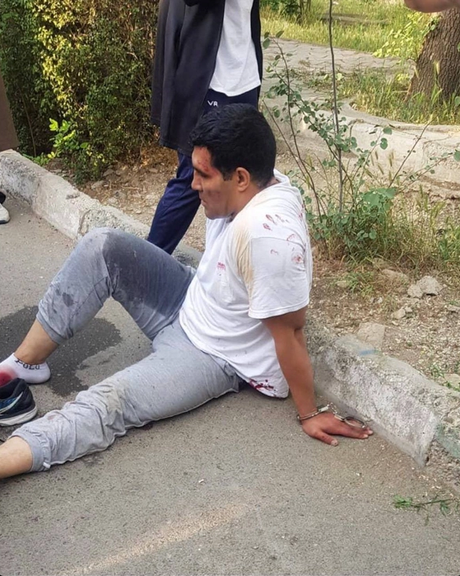
A court in Iran has dismissed a lawsuit by an Iranian boxer who was shot by a morality police officer while he was promenading in a park with his wife and 11-month daughter.
Reza Moradkhani said in an interview with Shargh daily published Saturday that they were walking in the Pardisan park in Tehran late in May when a 22-year-old morality police officer confronted his wife, Maria Arefi, and following verbal confrontation with the agents they pepper sprayed Moradkhani and Arefi and even their toddler.
Moradkhani then charged for one of the agents who had insulted his wife and the agent fired 10 shots at him, four of which hit the Iranian national team boxer, resulting in his hospitalization.
The Moradkhanis said that they had filed a complaint at the military court but that the court ruled against them and charged them with removing hijab and attacking a police officer.
The incident has gone viral on Iranian social media, with people condemning hijab policing and police impunity.
The paper quoted a witness as saying that the police officer who fired at Moradkhani forced bystanders who were recording the incident to erase their phones.
Moradkhani, who has been a boxer for the Iranian national team for many years and has won several Asian and world medals, is now unable to continue coaching due to the injuries in the incident.

Iranian President Ebrahim Raisi and his visiting Venezuelan counterpart Nicolas Maduro have signed a 20-year cooperation pact to bolster ties in various fields.
The signing ceremony between the two allies, both subject to United States sanctions, was officially held in the presence of their high-ranking officials in the Iranian capital Tehran on Saturday, when most of the speeches focused on resisting US pressures.
The inking of the agreement "shows the determination of top officials from both sides to develop relations despite US and Western pressure," Raisi said during a joint news conference.” He added that "Venezuela has passed hard years but the people, officials and the president were determined to resist the sanctions. This is a good sign that proves to everyone that resistance will work and will force the enemy to retreat."
According to state media, the partnership agreement includes cooperation in science, technology, agriculture, oil and gas, petrochemicals, tourism as well as culture, but no tangible details were released about the accord.
Iran has also signed a 25-year cooperation agreement with China and a proposed 20-year deal with Russia exists, both lacking details and concrete plans. Partly because of this, some Iranian social media users go as far as claiming that the Islamic Republic is "selling out the country and its people" to China and Russia.
Despite Iran’s currency dropping to an all-time low against the US dollar on Saturday, as well as regular protests over rising prices, mismanagement and systematic corruption, the Iranian president said Washington's ‘maximum pressure’ on Iran has miserably failed, calling it a victory for Iran.
Maduro, in turn, said the pact covers different areas of cooperation including energy, oil, gas, refineries and petrochemicals as well as "working together on defense projects", adding that “We will use the historical experiences of Iran and put technology at the focal point of this cooperation agreement.” Maduro also talked about financing shared projects through the Iran-Venezuela Relations Development Bank.
“The youths of Iran and Venezuela must know that the world of the future is a world of equality and justice. We stand against imperialism, and together we must build the future. I tell the Iranian people to count on all our support and cooperation,” Maduro said.
In addition to the significant role of Iran’s Oil Minister Javad Owji in relations between Tehran and Caracas, Iran's Defense Minister Mohammad-Reza Gharaei Ashtiani is also said to have played an outsized role as he greeted Maduro at the airport and has been a constant presence in the engagements to date.
Iran and Venezuela have been slapped with sanctions by the US, which does not currently import oil from either nation, and has in recent years reimposed sanctions on Iranian state entities, including the national oil company NIOC, and in 2019 blacklisted Venezuela’s energy firm PDVSA.
The two countries strengthened their cooperation in 2020, with Venezuela importing condensate from Iran, key to thinning its extra-thick crude oil. Iran has also stepped in to help its South American ally with engineers, refined products and spare parts for its oil industry.
They also recently expanded a swap agreement signed last year to increase the supply of Iranian heavy crude to Venezuela's El Palito refinery and Paraguana Refining Center (CRP).
In early May, Owji traveled to Venezuela to visit oil facilities and sign contracts in the energy sector. Later in May, an oil tanker carrying about one million barrels of Iranian crude arrived in Venezuelan waters for delivery to the country's largest refinery.
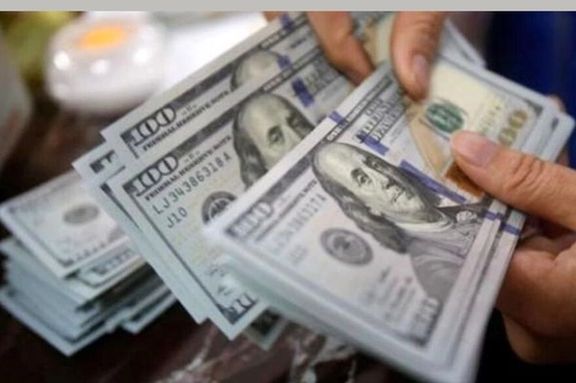
Iran’s hard-hit currency dropped to an all-time low against the US dollar on Saturday as markets opened for business amid runaway inflation and economic chaos.
The rial approached 330,000 to one US dollar, falling by more than 25 percent since the end of March and tenfold since 2017, when it traded at around 33,000.
The drop came as Iran was censured by a resolution passed in an overwhelming vote at the International Atomic Energy Agency board meeting on Wednesday. The 35-nation board of governors criticized Tehran for not cooperating with the UN nuclear watchdog.
Iran’s nuclear talks with the United States and its European allies to restore the 2015 agreement known as JCPOA came to a halt in early March, prompting pessimism over the prospects of lifting US sanctions and providing a lifeline to Iran’s economy.
Food prices have soared since early May when the government lifted import subsidies for essential goods to save foreign currency. Economists in Tehran have warned of triple-digit inflation in the coming months.
Anti-government Protests took place in May as prices soared and the political environment remains highly volatile.
US oil export and banking sanctions imposed against Iran in 2018 by the former US administration triggered a serious economic crisis that has gotten worse amid government inefficiency.
The rial was trading at 70 against the US dollar in 1978, before the Islamic revolution. The currency has fallen close to 5,000-fold in 44 years.